SUMMARY
This is AI generated summarization, which may have errors. For context, always refer to the full article.
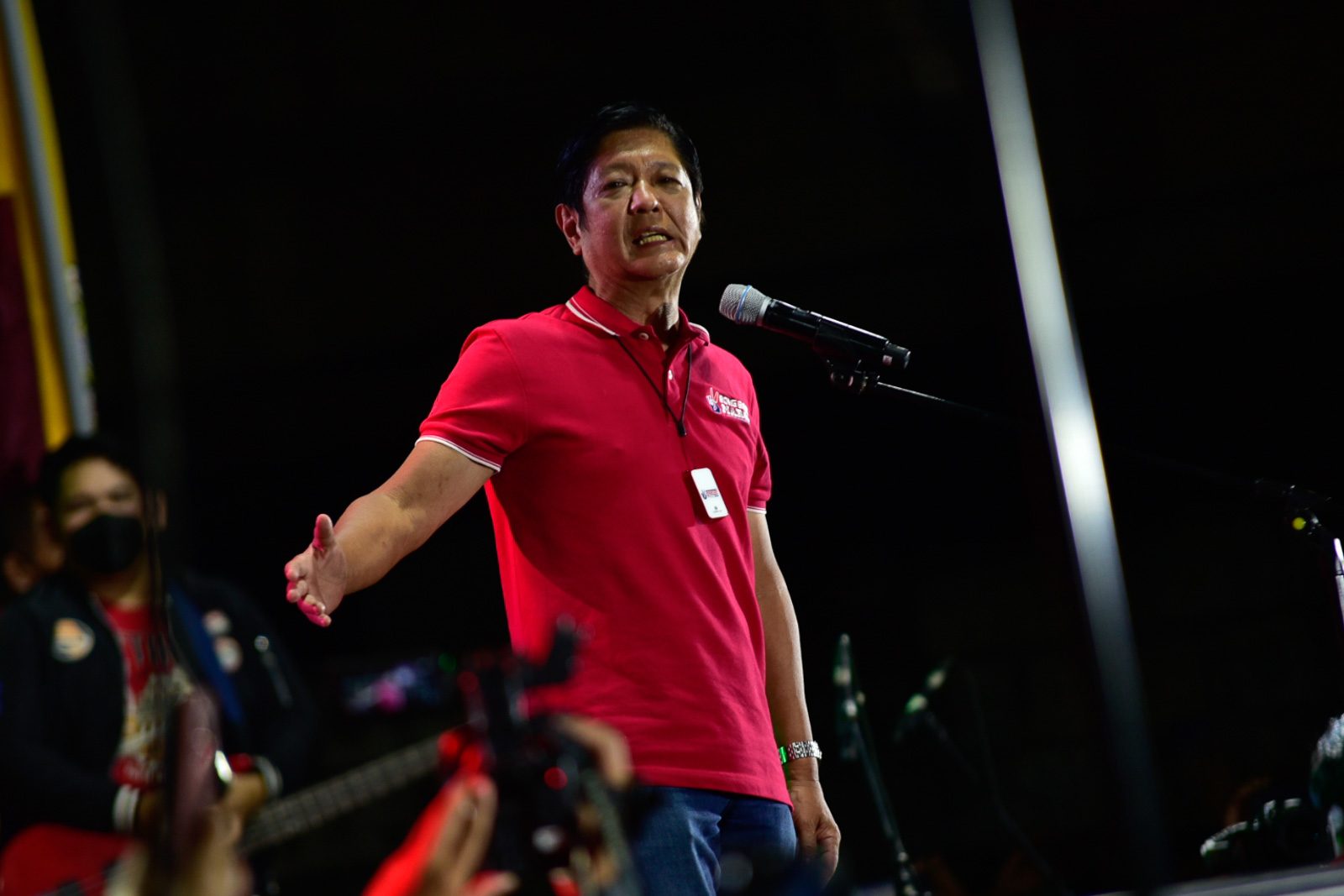
MANILA, Philippines – Dictator’s son Ferdinand Marcos Jr.’s assertion that he would seek an agreement with China to allow Filipinos to fish in the West Philippine Sea was, to experts dedicated to the issue, the latest display of the presidential candidate’s lack of knowledge on one of the most consequential foreign policy issues faced by the Philippines today.
Marcos’s latest comments on the issue made during the presidential debate hosted by Apollo Quiboloy-owned SMNI News on Tuesday, February 15, saw him vacillate between pushing for two-sided talks favored by China to engaging the Association of Southeast Asian Nations and trying “every single way we can” to iron out the long-running dispute. Candidates in attendance had been asked what specific policies they would implement to guard the interests of fishermen in the West Philippine Sea, where Manila and Beijing have been locked in dispute for decades.
“Pag nakahanap tayo ng kasunduan sa People’s Republic of China ay siguro baka simulan na natin ang pag-uusap tungkol sa West Philippine Sea dahil kung nasabi natin ‘Atin yun,’ at tumanggap sila, eh umpisa na iyan. Diyan natin magsimula at dahan-dahanan natin itong problema na meron tayo sa Tsina,” Marcos said.
(When we find some understanding with the People’s Republic of China, maybe we can start to talk about the West Philippine Sea because when we say ‘That’s ours,’ and they accept, that’s already a start. That’s where we can begin and slowly talk about this problem we have with China.)
Marcos, who in earlier media interviews repeatedly referred to China as “friends,” has staked his campaign on a promise of “unity” among opposing forces – a push he continued to raise as he spoke of a “coming together” with China.
But for experts on the South China Sea dispute, Marcos’ statements continue to serve as proof that the former senator’s outlook was one that would benefit China more than Filipinos. In making such claims, the former senator was also echoing President Rodrigo Duterte’s defeatist stand on the West Philippine Sea.
“What all this tells me is that he doesn’t really have a good grasp of these issues,” maritime law expert Jay Batongbacal told Rappler.
“It’s almost exactly like Duterte’s old position that he’ll just explain to China that our fishermen aren’t a national security threat…. You’ll beg so the other side will have compassion for you,” continued Batongbacal in Filipino. Batongbacal is the director of the University of the Philippines Institute for Maritime Affairs and the Law of the Sea.
Wrong premises
During the forum, Marcos had also argued that the West Philippine Sea issue was “not about fish” but about “territorial waters,” a premise that is “totally wrong,” said Retired Supreme Court Justice Antonio Carpio.
“I beg to differ that this is about fish. It is not about fish in my view. It is about territorial waters and when we have these 200 Chinese boats coming and blocking our fishermen it is to assert their claim that this is part of their territorial water,” Marcos said.
Throughout the exchange, Marcos repeatedly referred to waters in the West Philippine Sea as “territorial waters,” appearing to confuse the term with waters in the 200 nautical mile exclusive economic zone (EEZ) of the country.
Carpio corrected this, saying China was not claiming any of the Philippines’ territorial waters in the West Philippine Sea, which were limited to those within 12 nautical miles along the coast of Palawan, Mindoro, and Luzon facing the South China Sea.
“Our dispute with China in the WPS, outside of the territorial dispute in the Spratly Islands, is a dispute over EEZ waters, not territorial waters. A dispute over EEZ waters is a dispute over the resources in that EEZ – the fish, oil, gas and other mineral resources,” he said.
Carpio, one of the legal minds behind the landmark 2016 Hague ruling, also underscored that the right to fish in the Philippines’ EEZ waters was already exclusive to Filipinos under the United Nations Convention on the Law of the Sea, which the Philippines and China were parties to.
When it comes to asserting Filipinos’ rights in the West Philippine Sea, Marcos, in earlier media interviews, appeared prepared to set this aside the landmark arbitral award that reinforced the Philippines’ sovereign rights in the area, including the right to exclusively fish and enjoy marine resources.
“It’s no longer available to us,” Marcos had previously said. Instead, the former senator had referred to an “alliance” with China and repeated once more that “We are left only with a bilateral agreement and that’s where we should, what we should pursue.”
Carpio called this out, saying “China cannot be our ally since China is claiming not only all our island territories in the Spratlys, but also 80% of our EEZ in the WPS. The maritime area in the WPS that China is claiming is larger than the total land area of the Philippines.”
Not up-to-date
In defending the country’s waters, however, Marcos expressed openness to sending ships from the Philippine Navy or Coast Guard to the West Philippine Sea “not for them to go there and fire upon Chinese vessels, but merely to make their presence felt.”
The response is one already taken by the Philippine government, which sends regular patrols to the West Philippine Sea. Like Duterte, Marcos shunned ideas related to the military, saying it could lead to “war” with China, although foreign policy and security experts have already debunked this as a false choice and “hollow attempt” to scare Filipinos into submitting to China. (READ: Philippines protests China’s challenges vs West PH sea patrols)
“He might simply be not current on this issue. My sense is he doesn’t have anyone in his policy team advising him on national security matters. He seems to equate effective statecraft and achieving credible deterrence with war,” retired rear admiral Rommel Jude Ong said.
To Ong, Marcos’ preference for bilateral talks with China likewise belied a strategy that was removed from the current reality where this set up “can only work if there is symmetry in power and influence.” “Considering our current situation, this is what CCP (Chinese Communist Party) will want because they will have the advantage,” Ong said.
“His true position I think is really pro-China,” Batongbacal said. “It’s like Duterte’ old position that he needs China, and the Philippines can’t do anything about it…. It’s all very shallow, outdated, and simply uninformed.”
In harking back to the United States and China’s “ping pong diplomacy,” which helped to lay the groundwork for establishing diplomatic ties between the two superpowers, Marcos was also living in the past.
“It is a different era, with different set of leaders. It wont work today. The US already realized that Nixon’s strategy was flawed after Xi Jinping consolidated his power within the CCP,” Ong said. – Rappler.com
Add a comment
How does this make you feel?
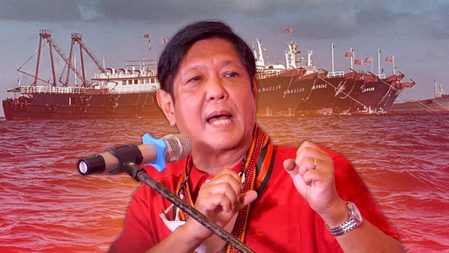





![[Newspoint] Improbable vote](https://www.rappler.com/tachyon/2023/03/Newspoint-improbable-vote-March-24-2023.jpg?resize=257%2C257&crop=339px%2C0px%2C720px%2C720px)
![[Newspoint] 19 million reasons](https://www.rappler.com/tachyon/2022/12/Newspoint-19-million-reasons-December-31-2022.jpg?resize=257%2C257&crop=181px%2C0px%2C900px%2C900px)
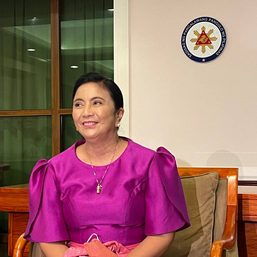


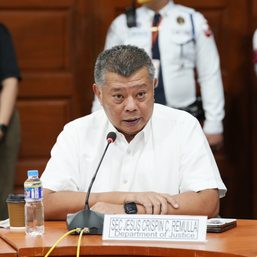
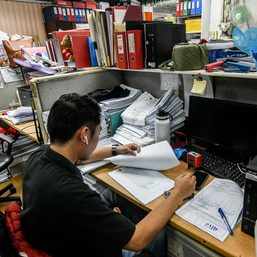
![[OPINION] If it’s Tuesday it must be Belgium – travels make over the Marcos image](https://www.rappler.com/tachyon/2024/04/tl-travel-makeovers-marcos-image.jpg?resize=257%2C257&crop_strategy=attention)
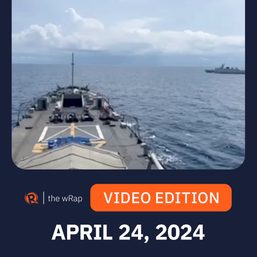

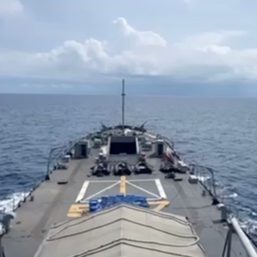
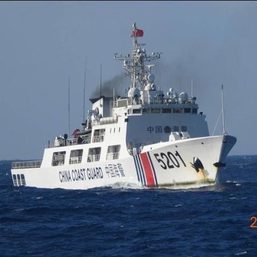

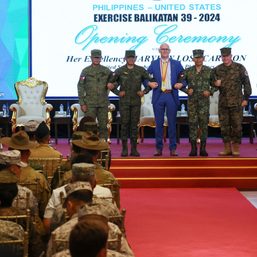
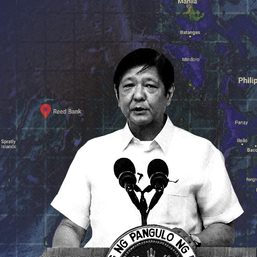
There are no comments yet. Add your comment to start the conversation.